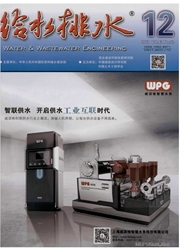

 中文摘要:
中文摘要:
为优化超声处理提高污泥活性的运行条件,考察了超声波的频率、强度、作用时间和污泥浓度等因素的影响。结果表明,采用35kHz和61kHz两种低频率超声波先后对污泥进行强化处理时,在总处理时间一致的条件下,超声波的顺序和时间分配对污泥活性的提高程度及活性的延续时间无显著差别;采用固定频率的超声波处理时,提高超声波的功率和延长超声作用时间都可以显著提高污泥活性;在功率和作用时间恒定的条件下,增大MLSS对单位质量污泥活性的提高程度影响较小,因此,对污泥先进行浓缩再超声处理可大大提高超声效率。
 英文摘要:
英文摘要:
For the optimization of ultrasonic treatment improving sludge activity, the effects of ultrasound frequency, intensity, irradiation time and sludge concentration were investigated. Results showed that, with a fixed total irradiation time, sequential ultrasound irradiation at frequency of 35 kHz and 61 kHz obtained same sludge activity improvement and duration regardless the irradiation sequence or the time partition. The improvement of sludge activity could be obviously enhanced by increasing irradiation intensity and irradiation time. Increase of sludge concentration had little impact on sludge activity improvement for the same intensity and time of ultrasonic irradia- tion. Thus, ultrasonic irradiation preceded by sludge condensation was thought to obtain higher treatment efficiency.
 同期刊论文项目
同期刊论文项目
 同项目期刊论文
同项目期刊论文
 期刊信息
期刊信息
